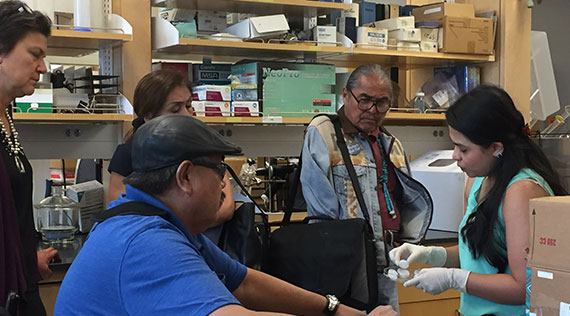Special Edition, Trainee-Written Highlight
Community Involvement in Environmental Cleanup: A Community Advisement Board meeting
By: Yoshira Ornelas Van Horne
On September 11th of 2015, UA SRP trainee, University of Arizona Superfund Research Program (UA SRP) Trainee, Yoshira Ornelas Van Horne, attended a Dewey-Humboldt Community Advisory Board (D-H CAB) meeting related to research and cleanup efforts at the Iron King Mine and Humboldt Smelter Superfund Site. The D-H CAB was formed in early 2011 in response to the discovery of environmental contamination stemming from historic mining operations, as well as to directly involve community members in research efforts. Ultimately, the D-H CAB hopes that relationships formed with regulatory agencies as a result of these meetings will help to drive cleanup and closure efforts, thus benefitting the community at large. Attendees at the September 11th meeting included UA SRP personnel, a D-H community member, and representative from the local health department. Other members of the CAB (although not present at the 9-11-15 meeting) include the local mayor, sheriff, and project researchers. Together, the group discusses feedback received on educational outreach materials, how to best present data to the community, and future directions for community education and involvement.
Yoshira talked of the role that CABs can play in supporting research efforts, while also providing the community with the opportunity to have open and ongoing conversations about goals and outcomes for cleanup sites. She feels there is, “a long history of scientific research groups working alongside CABs to ensure that community members are aware, understand, and ultimately benefit from their involvement in environmental research and cleanup.” Yoshira’s interest in attending CAB meetings stems not only from her research, but also from having family in Mayer, Arizona, which is located just five miles from the town of Dewey. Yoshira says, “Being able to participate in the meeting allowed me to understand how important and vital it is to get local community members involved in research. Not only can they provide valuable insight in terms of recruitment and local history, but they can also provide feedback in the direction of ongoing research.”
Yoshira hopes to continue in community exposure research and efforts towards improving environmental health literacy.


